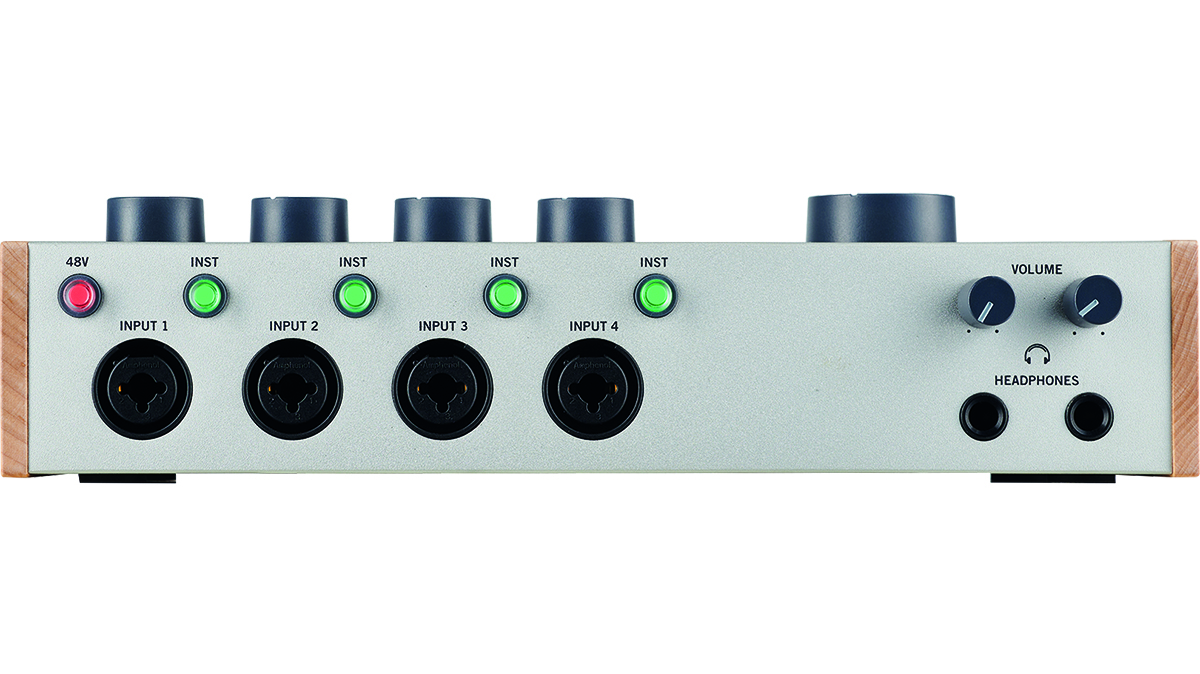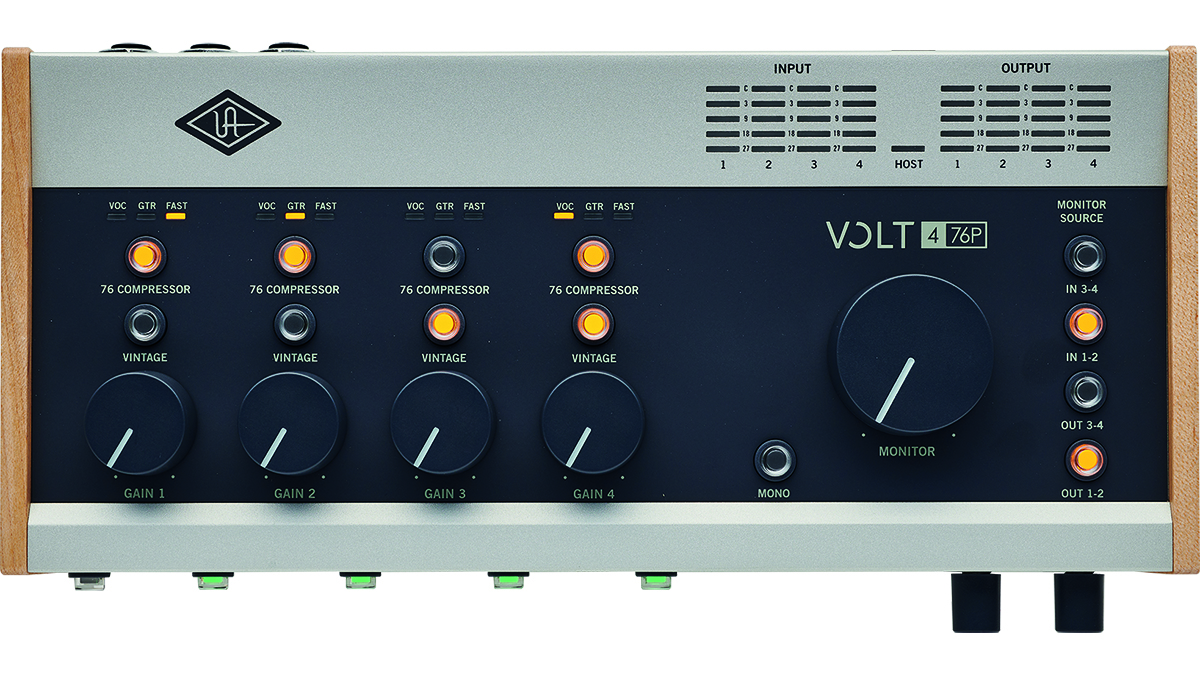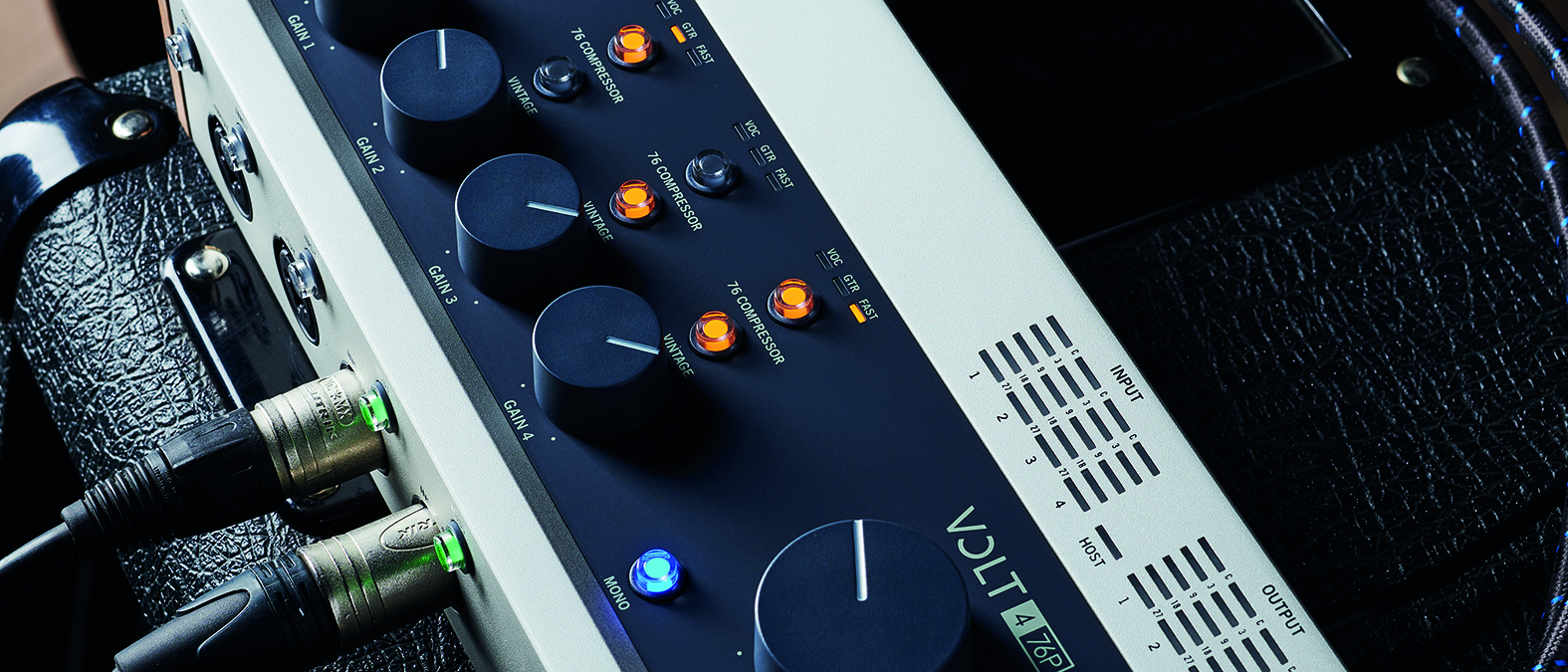MusicRadar Verdict
A well-priced, convenient interface plus software bundle that’s amply equipped for the business of recording bigger projects and group performances.
Pros
- +
Fully USB bus-powered.
- +
Monitor level lights for each channel.
- +
Four preamps.
- +
76 compressor settings: guitar, voice or fast.
Cons
- -
Could be even lighter.
MusicRadar's got your back
Universal Audio Volt 476P: What is it?
The 476P is the largest interface in the Volt series, with more channels and closer control options. In a wooden and metallic case, this model is robust but still not heavy, at 1.6kg, it’s designed for larger projects, like recording bands and groups acoustic instruments all via the same interface.
With analogue tube amp simulation and onboard compression, this model offers even more features than the smaller Volt series models. It is, again, inspired by the Apollo series (UA’s set of larger, pricier interfaces), which has made the brand so revered, albeit without the onboard DSP.

Four pre-amps for 3-pin/TRS jack inputs each have their own volume controls and vintage tube amp sound options; so four acoustic instruments can be recorded at once. Via four output lines, audio can be taken separately into four speakers or channels of a mixer.

Universal Audio Volt 476P: Performance and verdict
The 76 Compressor (inspired by UA’s 1176 Limiting Amplifier) allows onboard moderation of the sound, creating a more even sound from the louds and quiets, with three preset options; vocals, guitars and ‘fast attack’ instruments such as drums. The amount of compression depends on the gain levels. (A higher gain level means the compressor will act more.) This takes away from the work required in the edit and ensures the input is of the highest quality, in line with much of UA’s recording hardware. The vintage preamp is activated using the ‘vintage’ button under the compressor light.

Low latency stereo monitoring is highly useful, and mono playback can be activated with the mono key by the main monitor volume. Individual colour-coded lights and levels on the four input and output channels are easily visible from the other side of the room for checking levels on both signals coming in and out. Mono/stereo and input/output channels make it easy to see what’s on and off. USB bus-powered (with the option of mains power), the 76P can be used anywhere with a laptop. MIDI in and out adds to the recording options. This also features the desk lock attachment point.
Both the Volt 4 and 476P come with lots of software included – a Marshall Plexi Classic Amp, Softube Time & Tone bundle, Ableton Live Lite, Melodyne Essential, Ampeg SVT-VR Classic, Ujam Virtual Drummer and Virtual Bassist, Spitfire Audio LABS, a 30-day trial of UAD Spark and Relab’s LX480 Essentials – another bonus.
The 476P has much of the portability and compactness of a smaller interface but for four acoustic instruments. A solid sound and intuitive level monitoring and dials give this a great feel and, priced at £400, this is an excellent portable four-input interface.
Want all the hottest music and gear news, reviews, deals, features and more, direct to your inbox? Sign up here.
MusicRadar verdict: A well-priced, convenient interface plus software bundle that’s amply equipped for the business of recording bigger projects and group performances.
Universal Audio Volt 476P: The web says
"For me, Universal Audio’s Volt 476P comes up trumps because of the sound. It not only sounds good, it’s creatively inspiring. It actively makes me want to record more."
Gearnews
Universal Audio Volt 476P: Hands-on demos
Universal Audio
Archie Beatz
GAK
Noisegate
Universal Audio Volt 476P: Specifications
- KEY FEATURES: Desktop 4-in/4-out USB audio interface with 24-bit/192 kHz audio conversion, 76 Compressor adds analogue circuitry based on the renowned 1176, 1-in/1-out MIDI connections, 48V phantom power, Dual studio-quality headphone amplifiers.
- CONTACT: Universal Audio

Singer, songwriter, instrumentalist, composer, writer. One half of Interstellar Duo.
Reviews and opinions on gear; where acoustic and electronic music intersect.
